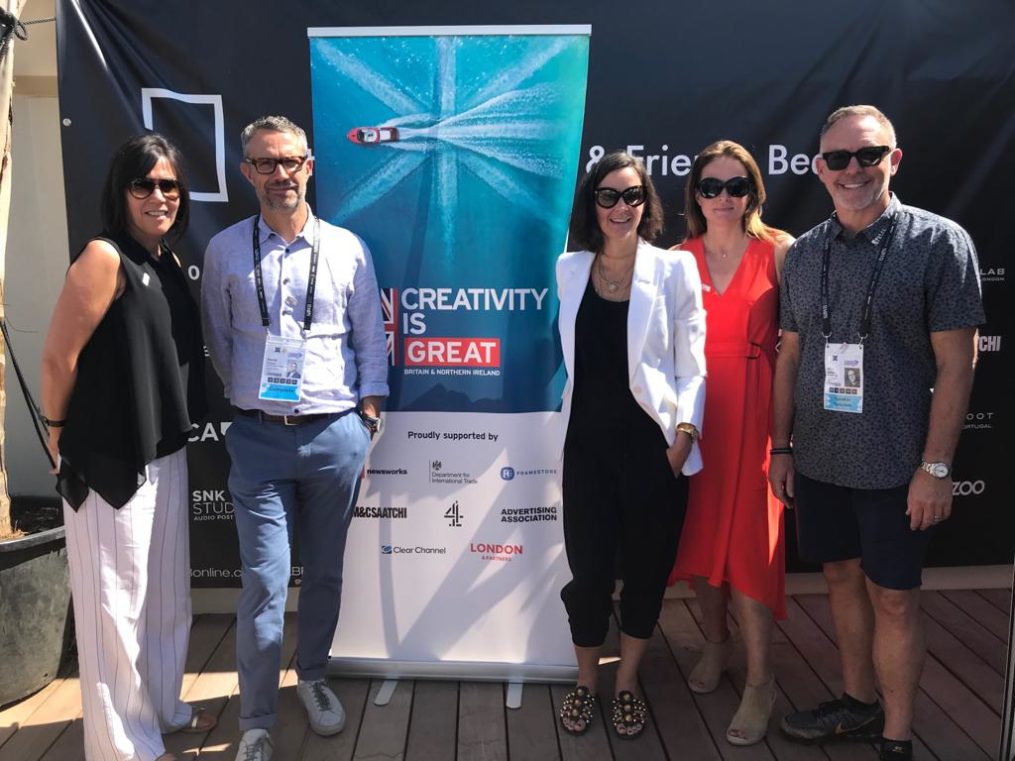Already a member? Sign in below

Business Reporter Liam Kelly takes a closer look at a panel session that took place on 20 June at Cannes Lions on leading world class creativity that included some of the biggest names in British advertising and media.
Media owners have called for the government be more active in regulating the industry to promote and protect quality news titles and public service broadcasters from the disruption caused by changing consumption habits.
Alex Mahon, the chief executive of Channel 4, and Guardian Media Group boss David Pemsel made a plea for legislation – which has all but ground to a halt because of the impasse over Brexit in the House of Commons – that would safeguard existing players under pressure from technology giants.
Mahon, who has run the publicly-owned broadcaster since October 2017, said that strong laws are the “backbone” of Britain’s creative industries and that the legal landscape makes it an attractive place to invest in media companies, but said that they need to be “updated in the digital world”.
Public service broadcasters – the BBC, ITV, Channel 4 and Channel 5 – must be shown prominently on the electronic programme guide on televisions, but there are no such requirements with smart TVs and on-demand services such as Amazon Prime. The regulation has not been updated since 2003, before the dawn of internet-connected televisions and streaming services.
Speaking at the Cannes Lions festival of creativity, Mahon said: “You have to think about how you access public service content. If that needs updating, it’s hard to get legislation through.
“When you voice search for news on Alexa, whose news do you get? Do you get the Guardian, do you get Russia Today? You get whoever’s paid the most money,” she added. “We need to think about how we how we update the framework to keep pace with that, or we risk our industry no longer being relevant.”
Meanwhile, Pemsel praised the recently-published government-commissioned review into sustainable journalism led by Dame Frances Cairncross as a “really thoughtful study” into the role of independent news on a democracy, but added: “All I would ask – and this is where Brexit creates the problem – is now you understand the problem, can we get to fixing it quickly?”
“It’s understandable but really frustrating, given the fact that problem is now clear and has been quantified, and now just need to look to solutions.”
Pemsel and Mahon were speaking alongside Kate Bosomworth, M&C Saatchi’s marketing chief and Framestore co-founder Mike McGee at a panel event held on the festival fringe and chaired by Newsworks boss Tracy De Groose (the speakers are pictured above).
In a wide-ranging discussion on leadership in the creative industries, McGee said that Oscar-winning special effects specialists Framestore – which has 52 nationalities based at its London office – “would just like to have some clarity of the fact that I’ll still be able to bring diversity into Britain” after Brexit, “because it’s what makes us creative”.
Pemsel said that leaders need to “create an environment where people can take risks” in order to help creatives flourish, while Bosomworth said that running a creative business “isn’t just about having a creative department, it’s about having a creative culture where everyone is involved”.
She also praised the government’s presence at the festival, which is being spearheaded by the Department for International Trade under the CreativityIsGREAT banner.
Already a member? Sign in below
If your company is already a member, register your email address now to be able to access our exclusive member-only content.
If your company would like to become a member, please visit our Front Foot page for more details.
Enter your email address to receive a link to reset your password
Your password needs to be at least seven characters. Mixing upper and lower case, numbers and symbols like ! " ? $ % ^ & ) will make it stronger.
If your company is already a member, register your account now to be able to access our exclusive member-only content.